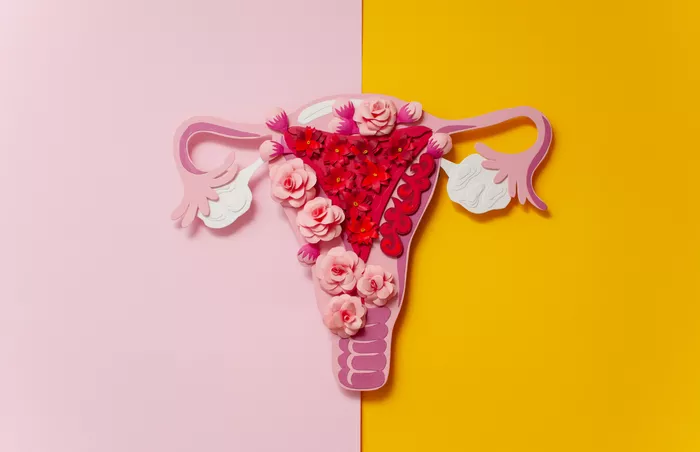The menstrual cycle is a complex process that occurs in the female reproductive system, typically lasting between 21 and 35 days. It is divided into several phases, with the follicular phase, ovulation, and the luteal phase being the primary stages of interest when considering fertility.
During the follicular phase, which lasts approximately 14 days, the body prepares for ovulation by stimulating the growth of follicles in the ovaries. These follicles contain immature eggs, and under the influence of hormones such as follicle-stimulating hormone (FSH), one dominant follicle will eventually mature.
Ovulation Definition
Ovulation marks the release of a mature egg from the ovary, typically occurring around day 14 of a 28-day cycle. This event is triggered by a surge in luteinizing hormone (LH), which causes the mature follicle to rupture and release its egg into the fallopian tube, where it may be fertilized by sperm.
Following ovulation, the luteal phase begins, lasting approximately 14 days. During this phase, the empty follicle transforms into a structure called the corpus luteum, which secretes hormones such as progesterone to prepare the uterine lining for potential implantation of a fertilized egg. If fertilization does not occur, hormone levels decline, leading to the shedding of the uterine lining and the onset of menstruation.
Ovulation Timing
Understanding the timing of ovulation is crucial for couples trying to conceive. Ovulation typically occurs 10-14 days before the start of the next menstrual period. For example, in a 28-day cycle, ovulation is most likely to happen around day 14. However, it’s important to note that this timing can vary from woman to woman and from cycle to cycle.
Fertile Window
The fertile window refers to the days during a woman’s menstrual cycle when pregnancy is most likely to occur. It includes the days leading up to and immediately following ovulation. While the egg is only viable for fertilization for about 12-24 hours after ovulation, sperm can survive in the female reproductive tract for several days. Therefore, the fertile window typically extends a few days before ovulation and possibly up to one day after, increasing the chances of conception.
Cycle Length Variability
Menstrual cycles can vary widely in length, ranging from 21 to 35 days or even longer. Factors such as stress, illness, and hormonal fluctuations can influence cycle length, causing variability from month to month. Understanding one’s typical cycle length can help predict ovulation and optimize timing for conception.
Signs of Ovulation
Recognizing the signs of ovulation can help couples identify the most fertile days of the menstrual cycle. Common symptoms include changes in basal body temperature, which typically rises slightly after ovulation, indicating increased progesterone levels. Additionally, changes in cervical mucus, such as increased volume and stretchiness, can indicate fertile days. Some women may also experience mild abdominal cramps or bloating around the time of ovulation.
Calculating Ovulation
To calculate the ovulation period, it’s essential to track the length of your menstrual cycle. Start by recording the first day of your menstrual period as day one, and count forward until the day before your next period begins. Ovulation typically occurs around the midpoint of the menstrual cycle, so subtract 10-14 days from the length of your cycle to estimate the most likely time of ovulation.
For example, if you have a 28-day cycle, ovulation is likely to occur around day 14. If your cycle is 32 days long, ovulation may occur around day 18. Tracking your menstrual cycle over several months can help pinpoint your ovulation pattern and improve accuracy in predicting fertile days.
Tips for Getting Pregnant
For couples trying to conceive, there are several practical tips to increase the chances of pregnancy:
1. Track Ovulation Signs: Use methods such as charting basal body temperature, monitoring changes in cervical mucus, and tracking menstrual cycles to identify fertile days accurately.
2. Timing Intercourse: Aim to have intercourse during the fertile window, ideally in the days leading up to ovulation and on the day of ovulation itself, to maximize the chances of sperm meeting the egg.
3. Healthy Lifestyle: Maintain a healthy diet, exercise regularly, and manage stress levels, as these factors can influence fertility. Avoid smoking, excessive alcohol consumption, and illicit drug use, as they can negatively impact reproductive health.
4. Prenatal Vitamins: Start taking prenatal vitamins containing folic acid before conception to support a healthy pregnancy and reduce the risk of birth defects.
5. Seek Medical Advice: If you have been trying to conceive for several months without success, consider consulting a healthcare provider for a fertility evaluation. They can assess potential underlying issues and provide guidance on next steps, such as fertility testing or assisted reproductive techniques.
Conclusion
In conclusion, understanding the menstrual cycle and ovulation timing is essential for couples trying to conceive. By tracking menstrual cycles, recognizing signs of ovulation, and optimizing timing for intercourse, couples can increase their chances of achieving pregnancy. Additionally, maintaining a healthy lifestyle and seeking medical advice when needed can support overall reproductive health and fertility.






















